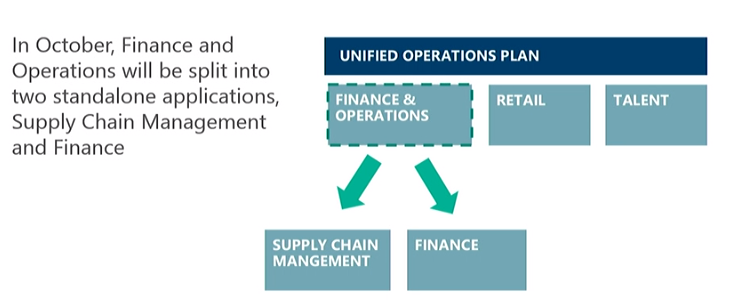
Although many people don't know what being laid off is, it can be a very difficult situation. Some cultures consider being fired to be a stigmatizing act. This article discusses the psychological and social effects of being laid off.
Job loss
Layoffs can be very scary for people. Not only do you worry about insurance and bills, but you may also question your sense of purpose. Whatever the reason for your layoff, you should start searching for a new job. Prospective employers will want to know why you were let go.
First, you should file for unemployment benefits. This will help you cover the costs of living until you find another job. It's also important to find out if you've been placed on a recall list. This information is important for your unemployment compensation application, as well as for your job search.

You must be honest about why you have been laid off. If the layoff is due to an unforeseeable cause, be truthful. Don't be angry or resentful - your former employer will understand your situation and will probably be sympathetic.
Psychological effects of layoffs
Layoffs can cause a sense of loss and vulnerability, which are two of the most common psychological side effects. Management can feel like they are on a roller coaster ride, with layoffs causing a lot of emotional turmoil. Managers have to deal both with losing valued employees and long-standing colleagues. It is vital to keep your project strong and your front line strong.
High levels of anxiety can also be caused by layoffs. Employees may feel angry or betrayed, which can lead to doubts about their self-worth. This makes it difficult for them not to speak up to colleagues or friends. Some may even stop working out. This may not only result in physical and mental health problems, but may also cause people to be more depressed and anxious.
You can reduce the psychological effects of layoffs by looking at the situation in perspective. Keep in mind that your situation isn't unique and that you weren't harmed by viruses. Be careful how you discuss the situation. You should avoid using terms like "fired", "layoff," or other interchangeable terms. It is important to remember that layoffs are often a result of a company's strategy or market conditions.

Effect on job search
The job search for a laid-off employee can be difficult because of many obstacles. First, the layoff notice is a red flag on an employee's record. Job seekers must actively search for suitable positions that match their vocation and pay scale. A third factor is the gap on your resume. This gap gradually grows as you search for a job.
Many employers will ask you about your reason for being laid off during a job interview. Being prepared to answer the question honestly, without being defensive, is essential. In addition, you will need to explain how you learned from the experience and moved on. Perhaps you took a course or received training so that your skills could be applied in another field.
It's important to remember that your skills will be needed in the job marketplace. Therefore, you need to take steps to get ready for your job hunt after you are laid off. You should also update your resume and make it as current as possible. You should also remove irrelevant information if possible. You will be able to quickly start your job search.
FAQ
What is Six Sigma?
It's an approach to quality improvement that emphasizes customer service and continuous learning. The objective is to eliminate all defects through statistical methods.
Motorola created Six Sigma as part of their efforts to improve manufacturing processes in 1986.
The idea spread quickly throughout the industry, and today, many organizations are using six sigma methods to improve product design, production, delivery, and customer service.
How can we create a culture of success in our company?
Successful company culture is one where people feel valued and respected.
It's based on three main principles:
-
Everyone has something to contribute
-
People are treated fairly
-
Respect is shared between individuals and groups
These values are evident in the way that people act. For example, they will treat others with courtesy and consideration.
They will listen respectfully to the opinions of others.
They can also be a source of inspiration for others.
In addition, the company culture encourages open communication and collaboration.
People feel free to express their views openly without fear of reprisal.
They are aware that mistakes can be accepted if they are treated honestly.
Finally, the company culture promotes integrity and honesty.
Everyone understands that the truth is always best.
Everyone knows that there are rules and regulations that apply to them.
People don't expect special treatment or favors.
What are the five management steps?
These five stages are: planning, execution monitoring, review and evaluation.
Planning is about setting goals for your future. It involves setting goals and making plans.
Execution is when you actually execute the plans. It is important to ensure that everyone follows the plans.
Monitoring is the act of monitoring your progress towards achieving your targets. Monitoring should include regular reviews of performance against goals and budgets.
Reviews take place at the end of each year. These reviews allow you to evaluate whether the year was successful. If not there are changes that can be made to improve the performance next year.
After the annual review, evaluation takes place. It helps identify which aspects worked well and which didn't. It provides feedback about how people perform.
What are management concepts, you ask?
Management concepts are the fundamental principles and practices that managers use when managing people and their resources. These include topics such as human resource policies and job descriptions, performance assessments, training programs and employee motivation.
Statistics
- As of 2020, personal bankers or tellers make an average of $32,620 per year, according to the BLS. (wgu.edu)
- The BLS says that financial services jobs like banking are expected to grow 4% by 2030, about as fast as the national average. (wgu.edu)
- This field is expected to grow about 7% by 2028, a bit faster than the national average for job growth. (wgu.edu)
- UpCounsel accepts only the top 5 percent of lawyers on its site. (upcounsel.com)
- 100% of the courses are offered online, and no campus visits are required — a big time-saver for you. (online.uc.edu)
External Links
How To
How can you apply the 5S in the office?
A well-organized workspace will make it easier to work efficiently. An organized workspace, clean desk and tidy room will make everyone more productive. The five S's, Sort, Shine. Sweep. Separate. and Store, work together to make sure that every inch of space can be used efficiently and effectively. This session will take you through each step and show you how they can fit into any environment.
-
Sort. Clear away clutter and paper so that you don’t spend time looking for it. You should place things where you are most likely to use them. If you find yourself frequently referring to something, place it near the location where you do your research. You should also consider whether you really need to keep something around -- if it doesn't serve a useful function, get rid of it!
-
Shine. Don't leave anything that could damage or cause harm to others. If you have lots of pens, it is a good idea to find a safe place to keep them. A pen holder might be a good investment, as it will prevent you from losing pens.
-
Sweep. Regularly clean surfaces to keep dirt from building up on furniture and other household items. A dusting machine is a great investment to keep your surfaces clean. To keep your workstation neat, you can reserve a certain area for dusting or sweeping.
-
Separate. It will help you save time and make it easier to dispose of your trash. Trash cans are usually placed strategically throughout the office so that you can easily throw out the garbage without searching for it. You can take advantage of this location and place trash bags near each bin to make it easy to find what you are looking for.